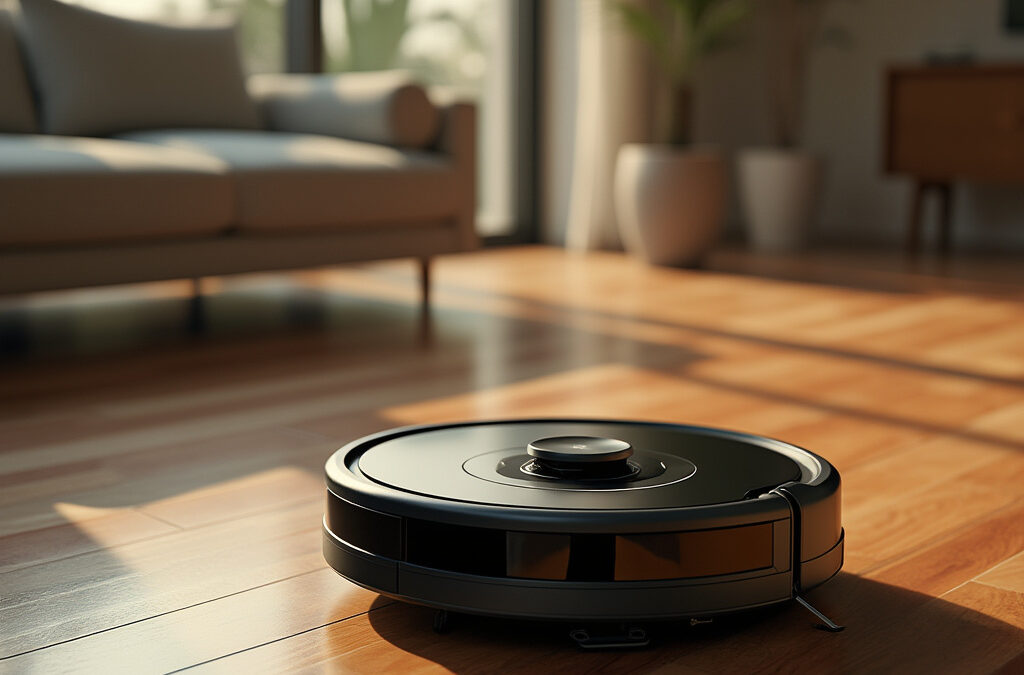In a stunning turn of events, iRobot, the beloved maker of Roomba robot vacuums, finds itself at a critical crossroads. The company’s board of directors has announced it is actively exploring strategic options, including the possibility of a full or partial sale of the business. This move comes amid growing concerns about iRobot’s financial health and long-term viability in an increasingly competitive market.
Once hailed as a pioneer in consumer robotics, iRobot has struggled in recent years to maintain its momentum. The company’s iconic Roomba vacuums, which revolutionized home cleaning, have faced fierce competition from lower-priced alternatives. Additionally, shifting consumer preferences and economic uncertainty have further pressured the brand’s sales and revenue.
The board’s decision to explore strategic alternatives signals a stark reality: iRobot’s future as an independent company is no longer guaranteed. While the exact financial figures remain undisclosed, the move suggests the company is grappling with significant challenges in maintaining profitability. This is a far cry from its heyday, when the Roomba became a symbol of innovation and convenience in millions of households worldwide.
The exploration of a potential sale has naturally sparked speculation about who might be interested in acquiring iRobot. While no specific buyers have been named, industry analysts point to several possibilities, including larger tech firms looking to expand their smart home offerings or private equity firms seeking to restructure the business for a potential turnaround.
For now, iRobot’s fate remains uncertain. The company’s journey from a groundbreaking startup to a household name has been nothing short of remarkable. Whether it continues as an independent entity or becomes part of a larger organization, one thing is clear: iRobot’s next chapter will be pivotal in determining its legacy in the consumer robotics industry.
As the situation unfolds, stakeholders—including employees, shareholders, and loyal customers—are left to wonder what the future holds for a company that once seemed unstoppable. One thing is certain: the road ahead for iRobot will be filled with tough decisions and high stakes.
iRobot’s financial struggles have been compounded by declining sales and revenue, which have raised significant concerns about the company’s ability to remain profitable. The robot vacuum market, once dominated by the Roomba, has become increasingly crowded with lower-priced alternatives, putting pressure on iRobot’s margins. This shift in market dynamics has forced the company to reconsider its strategy and explore options that could ensure its survival.
The exploration of strategic alternatives, including a potential sale, highlights the critical juncture at which iRobot finds itself. The board’s decision to consider such options underscores the gravity of the situation and the need for swift action to address the company’s financial woes. This move is seen as an attempt to maximize value for shareholders, even as the company grapples with the challenges of maintaining its independence in a highly competitive industry.
The potential sale of the business has sparked widespread speculation, with industry analysts suggesting that larger tech firms or private equity firms could be potential suitors. While no specific buyers have been named, the interest in iRobot could stem from its brand recognition and the strategic value of its technology in the growing smart home market. However, the outcome of these explorations remains uncertain, leaving stakeholders in a state of anticipation.
As iRobot navigates this challenging period, the focus will be on whether the company can regain its footing in the market or if it will become part of a larger organization. The road ahead is fraught with difficult decisions, but one thing is clear: the outcome of this process will have a profound impact on the future of the company and its legacy in the consumer robotics industry.
Conclusion
iRobot, once a trailblazer in consumer robotics, now stands at a pivotal moment in its history. The exploration of strategic options, including a potential sale, underscores the significant challenges the company faces in a competitive and evolving market. While the Roomba remains an iconic product, the rise of lower-priced alternatives and shifting consumer preferences have pressured the brand’s profitability. The outcome of this process will not only determine iRobot’s future but also shape its legacy in the industry. Whether it continues as an independent entity or becomes part of a larger organization, the next chapter for iRobot will be crucial in defining its place in the consumer robotics landscape.
Frequently Asked Questions
Why is iRobot exploring strategic options like a potential sale?
iRobot is exploring strategic options, including a potential sale, due to financial challenges and increased competition in the robot vacuum market. The company has faced declining sales and revenue as lower-priced alternatives have gained market share.
What does this mean for iRobot’s future as an independent company?
The exploration of strategic alternatives suggests that iRobot’s future as an independent company is uncertain. The board is considering options that could include a full or partial sale of the business to ensure its survival and maximize shareholder value.
Who might be interested in acquiring iRobot?
Potential buyers could include larger tech firms looking to expand their smart home offerings or private equity firms interested in restructuring the business for a turnaround. However, no specific buyers have been named at this time.
How does this affect iRobot’s customers?
For now, customers can expect continued support and product development from iRobot. Should a sale occur, customers may see integration with other smart home technologies, but the immediate impact on existing products is expected to be minimal.
What does this mean for iRobot’s legacy in consumer robotics?
The outcome of this process will significantly impact iRobot’s legacy. Whether it remains independent or becomes part of a larger organization, the company’s next steps will shape its role in the consumer robotics industry for years to come.

